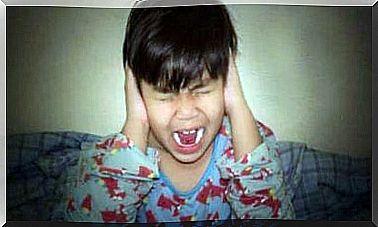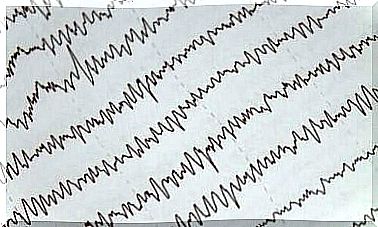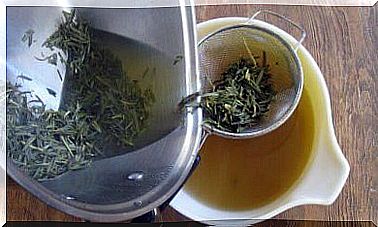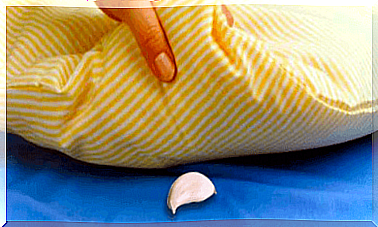A Burning Mouth – What Causes It?
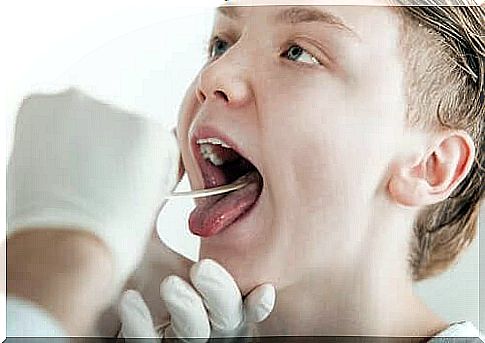
You have a burning mouth and you don’t know why. Well, under certain circumstances it’s normal, like right after eating spicy food. However, it is a chronic problem for some people and the reasons are not so clear.
The medical term for this symptom is glossodynia, but most know it as burning mouth syndrome. Estimates indicate that it affects about 5 to 10% of the population. It is very uncomfortable for those who suffer from it, as the burning sensation spreads all over their mouth.
This syndrome is not yet well known. However, we do know that it can be related to certain pathological conditions. For example, it could be either the sign of a deficiency in certain vitamins or an allergic reaction.
In today’s article, we will explain the reason behind chronic burning mouth syndrome and its causes. We’ll also talk about what you can do about it.
Why does my mouth burn continuously?
As we mentioned above, it is normal to have a burning sensation in your mouth under certain circumstances. For example after eating spicy food. However, this is a localized situation that is easy to identify and resolves on its own.
However, people who experience it for no apparent reason and suffer from it for a long time may have burning mouth syndrome. As we mentioned above, this syndrome causes the kind of burning sensation that spreads over the tongue and to every other part of the mouth.
In addition, someone with this condition may experience a decrease in their sense of taste. It is also common for the burning sensation to be accompanied by numbness and dryness. It generally happens every day, although it gets worse during the day. It can be chronic or intermittent, depending on the case.
The burning mouth syndrome
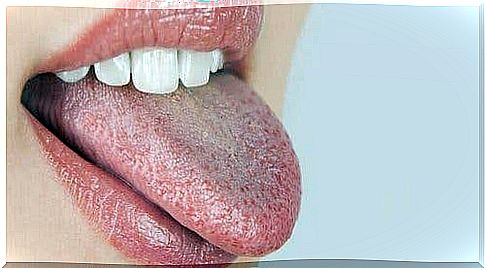
A burning mouth can result from eating spicy foods. However, it can be the result of burning mouth syndrome, if it is recurrent or severe.
The reasons why some people experience it are divided into primary and secondary. It is considered primary when all causes for it can be excluded, the same as with other pathologies.
Similarly, the syndrome is considered secondary when there is another disease or condition that causes it, for example the use of certain medications. This is because many of them make your mouth dry and you may experience a burning sensation. There are also other causes such as:
- Fungal infections, such as oral candidiasis (Spanish link).
- Certain vitamin and nutritional deficiencies, such as a lack of iron.
- Situations of stress or anxiety.
- Inefficient oral cleansing habits. In fact, some tongue brushes and rinses can be very aggressive and cause this.
- A number of metabolic diseases and gastroesophageal reflux disease. The latter happens because the acidic stomach contents reach the mouth. Since they are acidic, they irritate the oral mucosa.
Diagnosis
This syndrome is very difficult to diagnose. As we explained above, the first thing to do is rule out all secondary causes. To do this, you need to tell your doctor in detail all your symptoms and list all the medications you are taking.
To reach a diagnosis, the doctor will probably ask for a blood test. This is because with this test they can check if you have any hormonal or nutritional problems that could be causing this. Similarly, allergy tests are also helpful. Sometimes your mouth gets a burning sensation from certain foods.
Likewise, they will perform cultures or biopsies of the oral tissue to rule out infection. They should also rule out gastroesophageal reflux as this is a common condition.
Treatment for a Burning Mouth

Treatment for a burning mouth may include some mouthwashes with medicinal properties. Your doctor will determine the most appropriate dose for you.
The treatment for a burning mouth depends on the cause. The priority, of course, is to treat the underlying pathology. For example, you need to learn to deal with your anxiety and stress if the condition responds to them.
There are also some medical treatments such as mouthwashes that contain lidocaine. They may also prescribe the following:
- capsaicin.
- Painkillers.
- Antidepressants.
The doctors should be able to recommend the best option for each case.
Conclusion
A burning sensation in your mouth can be somewhat pathological if it lasts for a long time. Again, the medical term is burning mouth syndrome, and its appearance is usually a side effect of certain pathologies, such as allergies. You should see your doctor to get an adequate diagnosis and treatment.

